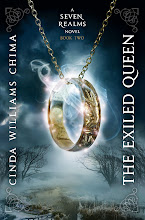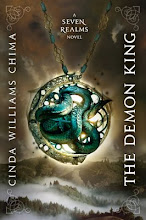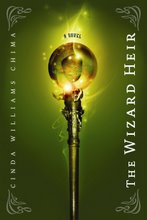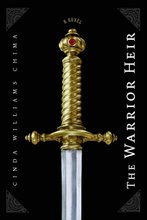
Q: Your writing is pretty good now. How was it when you started?
A: I began writing romance novels in middle school but got away from writing when I was working my way through college. It took me years to get back to it.
I made several false starts at writing novels as a grown-up. I hate to admit it, but I didn’t do my homework first. What I brought to writing was a lifetime of reading and a love of good books. But there is a method to the craft, as I eventually discovered.
The first book I wrote as an adult was a murder mystery in a local setting. There was a strong autobiographical element—the main character was a rebellious teenager whose father was a truck driver. That effort dwindled away and the manuscript itself disappeared during a computer disaster. From that, I learned to back up my work.
The Warrior Heir was my second serious attempt at a novel as an adult. I plunged into it headlong, then spent the next five years revising it as I learned more and more about how little I knew going in. The final book bore little resemblance to what I started with, except it was a fantasy, and the main character was named Jack. After that, I found an agent and a publisher bought it and I was an overnight success.
I feel blessed to have published my first novel—though in a way it wasn’t.
Don’t do as I did. I think too many writers quit focusing on craft too soon and turn their attention to marketing before their work is really ready. I’m frustrated when I go to writing conferences where there is no attention paid to craft. It’s all about query letters and how to find an agent.
Even now, I am constantly learning, and trying to get better, to the point that it's hard to open one of my published books without wanting to put sticky notes in. (I understand that’s a common affliction of writers.)
At least now, when I read the novels I wrote when I was in middle school, I can see the bones of the writer in the prose. I'm distant enough from them to say, Cool! that I was writing then, instead of aaaaargh!













4 comments:
I pulled my conference note files from the last few years, and you're right. Most of the offerings are about marketing - writing query letters and finding an agent or editor. Two of the best sessions I've attended were given by Rachel Vater at the Columbus Writer's conference, and Arthur Levine at the Butler Children's Literature Conference. Rachel talked about ways to make your novel the best it can be. Arthur Levine's session was specifically about craft, story arc, and the genius known as J.K. Rowling.
Nora, I agree, I've hear Mr. Levine speak before--always worthwhile.
Cinda
I have noticed most of the conferences have sessions on query letters, writing the synopsis, what not to present to an agent, etc. There are very few, if any, sessions about formatting the novel manuscript including working in different genres throughout a story. There have been a few craft articles on manuscripts having a main genre and a sub-genre, but I have yet to see articles on multiple genres within a manuscript.
Do you have any thoughts on multiple genres in a story, Cinda?
Barbara, I think multiple genres is fine from a story standpoint. Depending on how you define genre, I'm always working on multiple platforms-young adult, fantasy, romance, adventure. The challenge surfaces when it comes to marketing. Sales needs a way to sell the book in. I often wish it wasn't necessary to pigeonhole a book--YA has a lot of adult readers, but we would have more if our books weren't shelved only in the teen section.
Post a Comment